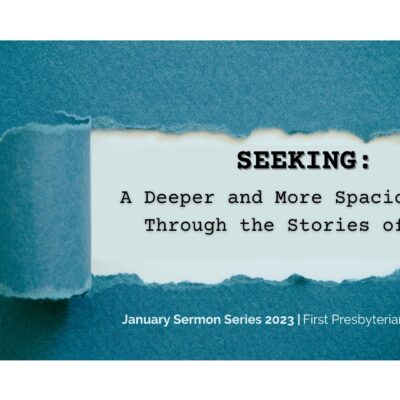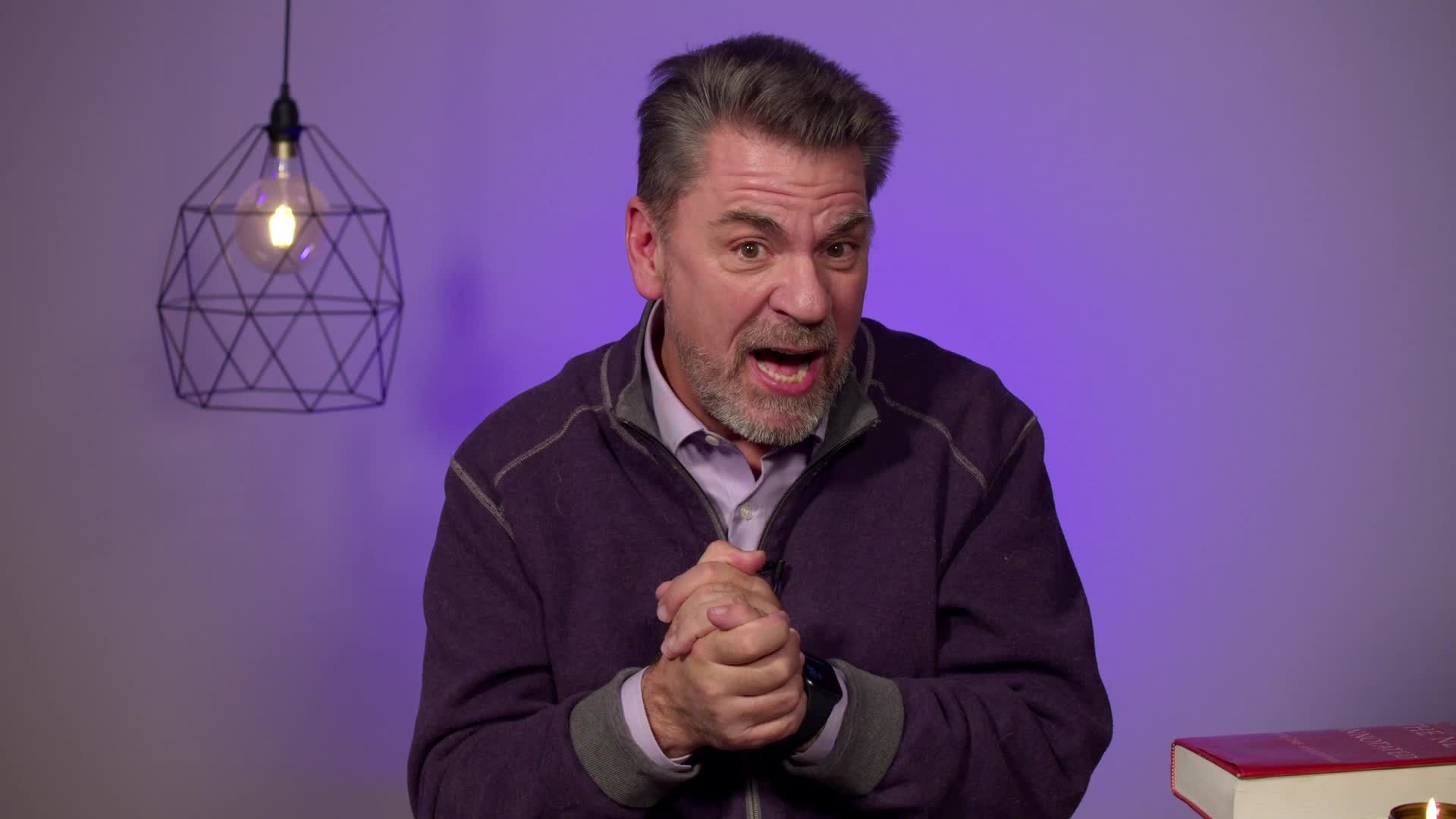Feb 5th, Generosity – Parable of the Sower, with Rev. Dr. Steven Koski
A Part of the Series:
Rev. Dr. Steven Koski
Other Articles in:
Feb 5th: Generosity – Parable of the Sower, with Rev. Dr. Steven Koski.
The purpose of Jesus life was not to change God’s mind about us, but to change our mind about God revealing and introducing to us a generous God god, a generous God of extravagant and unconditional love. Jesus was always inviting people to stretch and to move beyond what they think they already know. That’s why Jesus frequently spoken in parables. Scholars like to argue about what were the actual words of the historical Jesus and what did the early Church add? And most scholars agree the parables of Jesus are likely the actual teachings of Jesus.
Now, the word parable means literally means alongside. Jesus tossed these provocative stories alongside us. And if we’re to catch the wisdom and the grace and the stories, we have to be willing to move. To move from the familiar and worn path of what we think we already know and stretch. Stretch to receive the gift in the stories.
Now, parables are not illustrations or fables meant to reveal a single point or lesson.
Jesus would actually take something really familiar and he’d twist it and he’d turn it to provoke us and invite us to see things in a new way. So as we listen to today’s story, today’s story about a sower and some seeds, instead of searching for the answer or searching for the moral or lesson in the story, what if we ask ourselves different questions as we listen? Now, if the story is a ball thrown alongside, how are we being asked to stretch, to move? Where are we being challenged in our understanding of God and ourselves? What surprises us?
Where is the invitation in the story? So here is the parable of the sower from the Gospel of Matthew. Jesus went out of the house and sat by the lake. Such large crowds gathered around Jesus that he got in a boat and sat in it while all the people stood on the shore. Then Jesus told them many things in parables, saying a farmer went out to sow his seeds.
As he was scattering the seed, some fell along the path and the birds came and ate it up. Some fell on rocky places where it did not have much soil. It sprang up quickly because the soil was shallow. But when the sun came up, the plants were scorched, and they withered because they had no roots. Other seed fell among the thorns, which grew up and choked the plants.
Still other seed fell on good soil, where it produced a crop 160 or 30 times what was. Sown whoever has ears lit them here.
A traditional reading of this parable is to assume that we are the soil and the story is about us and the quality of the soil of our souls. Don’t we assume most things are about us? The truth is, I do recognize myself in all the soils Jesus describes in the story. No doubt I have days when I can be the hardened path closed off with a defended heart, because sometimes the pain in the world just is too much to bear. I have certainly been rocky ground with shallow soil and no roots.
I felt small seeds of joy and love and hope and faith snatched away as I’ve experienced loss and grief, depression and doubt. I felt my faith at times spring up quickly, only to have it wilt. I’ve certainly had moments where it seems the weeds are choking the life out of me and I’ve fallen among thorns and brambles, caught in pain or worry or fear with with little room to stretch or grow.
In some days, especially lately, the soil feels scorched by the oppressive heat of life and the brutal systems of injustice that continue to kill and threaten the most vulnerable.
There are times it seems like the seeds that the seeds that might yield peace, justice, healing, don’t stand a chance in the combative soil of our culture these days. Yeah. Yeah. I can recognize myself in all of the soils that Jesus describes, sometimes times in the course of a single day.
But when we read this parable, assuming the story is about us, using the story as a tool to analyze and judge the worthiness of our soil, it makes for a really, really cynical story.
It’s not a bad thing to do, a little self reflection, but I don’t think that’s the story Jesus is telling here. Jesus didn’t tell such straightforward, unimaginative stories.
Jesus told stories that took something familiar and turned it upside down, inviting us to see with a different lens. Making this parable about us is a really familiar lens. You know the one we should beat ourselves up. We should really feel guilty about the quality of our soil. We don’t measure up.
We’re not enough. We should do more. If we could just get our act together and be better people, be better Christians, we might then be worthy to receive the seeds of God’s grace. Sound familiar? As I mentioned a couple of weeks ago in the parable of the Prodigal Son, that’s what we do.
We turn our relationship with God into a transaction. If I do X, I will then earn God’s favor. If I confess, if I pull those weeds, if I promise to take better care of the soil, then I’ll be worthy to have the seeds of God’s grace take root in my life.
Now, if the story is about us, god then becomes the demanding farmer, constantly judging the quality of the soil and woe to those whose lives waste the seeds that God is scattered. The life of faith then becomes this disjoyless obligation rather than an experience of grace that sets us free and brings us joy. Jesus the storyteller. Jesus turned familiar stories upside down, inviting us to see God and ourselves through a different lens.
So imagine with me for a moment what if the story Jesus told isn’t about us and our shortcomings? What would change in how we experience the story. If we understood that Jesus was telling a story about the heart of the one who was scattering the seeds, what if it’s a story about the generosity of God, the prolific sower of seeds? Who doesn’t obsess about the conditions of the fields, who isn’t stingy with the seed but scatters seeds everywhere on good soil and bad, who’s not cautious or judgmental or even practical, but who is willing to keep reaching into the seed bank, covering the whole of creation with degenerative seeds of God’s love and mercy and justice?
How might we be stretched in our understanding of God and ourselves if we shifted our focus from the soil to the generosity of the sower?
If we did that, the first thing we notice the first thing we notice is that the sower in the story, the sower scatters seeds, generously, extravagantly wastefully. The seeds fall on good soil and bad soil.
If I were sowing seeds, I’d want greater odds of success. I’d want to make sure the seeds landed on fertile soil, fertile soil. This generous, extravagant wasteful scattering of seeds would just have to stop. It’s just bad farming to waste good seed on unproductive soil.
That’s how the world works. It’s bad farming to waste good seed on unproductive soil. I mean, we’re certainly told in our society there are people who aren’t worthy of our time, our investments. There are people less worthy, we’re told, because of the color of their skin, their education or economic status, their gender, their sexual orientation, whether or not they hold legal documents, whether or not they have a prison record, whether or not they have a roof over their heads. There’s an idea that has taken root in the soil of this world that some people are less worthy than others.
But when we shift our lens to the sower of the seeds in the story, we notice the sower pays very little attention to the condition of the soil. The sower doesn’t worry whether it’s productive or unproductive soil. The soar doesn’t seem to be worried about the odds of success or failure.
The sower isn’t stingy with the seeds with wild abandon. The sower scatters handfuls of seeds across the fields like stars flung across the sky.
Now, to us in our world, the soar appears to be recklessly, inefficient and extravagantly wasteful.
But what if that’s actually the hope and the beauty of the story?
The nature of the soar is to be radically generous, and the soar assumes those seeds can take root in any kind of soil. The soar assumes the best and not the worst. The sower gives the benefit of the doubt. The sower believes that everyone is deserving of seeds regardless of the current quality of their soil. The soar isn’t stingy, but operates from a place of abundance.
The soar focuses on giving and giving and giving without any expectation of what he or she may get in return.
Just imagine what might happen if we reflected that same kind of radical generosity in the world of the sower. You know, what I love most about shifting our lens and the story from the soil to the soar is noticing the abundance of love and the sheer refusal to give up on us. God doesn’t stop scattering seeds of divine love because the soil isn’t perfect. Thank God. What a relief.
In fact, God is scattering seeds with reckless abandonment. God is the relentless and lavish sower sowing seeds here, there, everywhere.
This is radical generosity.
Once we embrace this radical generosity, we can let go of our hangups about what kind of soil we are. And we can stop judging the quality of other people’s soil.
There’s this defiant and fierce hope in trusting a God with this kind of radical generosity because this kind of radical generosity trusts sowing. A seed on a rock may yield something because sometimes out of a rock comes a tree, and sometimes out of concrete comes a flower.
This kind of radical generosity really offers us hope amidst a world that sometimes feels hardened and rocky and full of thorns.
We’re living right now in a remarkably challenging and painful moment. If ever there was a time to scatter seeds of radical love and generosity, it’s now to practice radical generosity, scattering seeds of love and compassion and justice in the hopeful peace and especially scattering those seeds in the less promising places.
A while back, there was a man standing on the corner on the corner of highway 20 and 27th. And this man had the same threatening look as my mother had when I knew I was in trouble. My mother could make me feel guilty before I even knew what I had done to feel guilty about this man. Was holding a sign was holding a sign that said, are you saved, repent or spend eternity in hell? No.
Across the street by the shell station were two teenage girls with the exuberance of one too many white mochas from Dutch Bros. I mean, they were dancing and singing and laughing and they were holding a sign that said free Car Wash. Now, my car wasn’t dirty, but my soul took over the wheel intuitively knowing I needed to wash away some of the gloom. And I learned their dance troupe, the Teenagers dance troupe decided to spend a Saturday afternoon spreading love and kindness. What?
Why? I asked. Just because. I said, come on, there must be a catch. What’s the hook?
Are you raising money? Are you raising money for your dance troop? Are you selling tickets for an upcoming performance? No, they said they said there’s just too much negativity and hate. There’s just too much pain and heartbreak.
We just wanted to remind people there’s still some good in this world and we wanted to give people a reason to smile today.
You know, it kind of reminded me of a story Jesus told about a sower who generously, extravagantly, wastefully scattered seeds across the field. Why?
Because that’s what love does.
That afternoon, two teenagers high on white mochas helped me see the heart of God.
As for being saved, I’ll leave that in the hands of a God who loves generously, extravagantly and wastefully.
And I just might spend the day practicing radical generosity scattering some seeds of goodness myself. Do you want to join me? Because you just never know where flowers might grow. May it be so.



